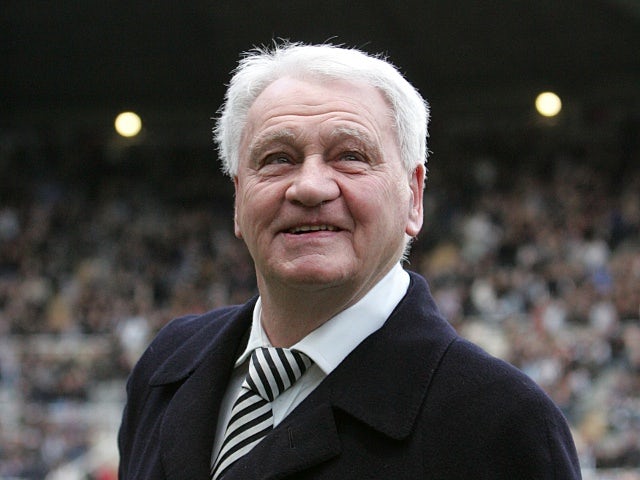The word 'legend' is used far too often in the modern day, not just in sport, but in all walks of life.
It is a word that can certainly be used to describe Sir Bobby Robson, however, who lost his battle with lung cancer on this day in 2009.
It was Fulham who gave a young Robson his big break in football, with the forward making his debut for the London outfit in 1950. He scored a total of 68 league goals in 152 appearances before joining West Bromwich Albion in 1956.
It was another successful period for Robson, but he returned to his first club in 1962, making another 192 league appearances for the Cottagers before ending his playing career in 1968 with the Vancouver Royals.
It was as a manager that Robson made his name, taking charge of Fulham in 1968 before moving to Ipswich Town one season later.
After struggling in the early stages, Robson led Ipswich to fourth place in the First Division in the 1972-73 campaign, in addition to claiming the Texaco Cup and later the FA Cup. His tenure at Ipswich lasted 13 years in total, during which he also won the UEFA Cup in 1981 with a famous 5-4 aggregate win over AZ Alkmaar.
Robson's achievements with Ipswich earned him the ultimate job for an Englishman: taking charge of the national team in 1982. It did not take long for Robson to make an impression, dropping Kevin Keegan in his first match in charge against Denmark.
After failing to lead England to the 1984 European Championships, Robson offered to resign from his post, but that was rejected by then FA Chairman Bert Millichip.
In 1990, Robson led England to the semi-finals of the World Cup, but they were beaten on penalties by West Germany. To this very day, Robson remains just the second coach after Alf Ramsey to take England to the final four of a World Cup.
Continental management followed as Robson took charge of PSV Eindhoven – winning two league titles for the Dutch outfit - before moving to Sporting Lisbon in 1992, where his Portuguese interpreter was a certain Jose Mourinho.
A spell with Porto, where he also won two league titles, followed with Robson taking Mourinho as his assistant. Another familiar face, now Tottenham Hotspur boss Andre Villas-Boas, was also part of the backroom set-up at the Portuguese outfit.
Robson eventually took charge of Barcelona in 1996, before moving into the position of general manager one season later. He returned to PSV Eindhoven on a short-term basis in 1998 but he departed the following summer.
When Robson returned to England to take charge of Newcastle United in 1999, the club were bottom of the table. His first match in charge saw the Magpies record an 8-0 win against Sheffield Wednesday.
He led the club to fourth in the 2001-02 campaign, before going one better in the following season. He could not lead Newcastle through the qualifying rounds of the Champions League, however, with the club being pushed back into the UEFA Cup. He held the post until August 2004 when he was dismissed by chairman Freddy Shepherd, a decision that has long been questioned.
Undoubtedly Robson was a footballing man, but it was his character that made him such a popular figure in the world of sport. He defeated bowel cancer in 1992, a malignant tumour in 1995 and a brain tumour in 2006. His final diagnosis of cancer came in 2007, which was pronounced terminal in February of that year.
Upon learning that he would not be able to overcome the disease, Robson said in a statement: "My condition is described as static and has not altered since my last bout of chemotherapy... I am going to die sooner rather than later. But then everyone has to go sometime and I have enjoyed every minute."
Robson was created a Knight Bachelor in 2002, in addition to being inducted as a member of the English Football Hall of Fame in 2003. He lost his battle with cancer on July 31, 2009 at the age of 76, but his name lives on in the shape of the Sir Bobby Robson Foundation.
The phrase 'everyone dies, but not everyone lives' certainly cannot be attributed to Sir Robert William Robson, a legend in every sense of the word.








